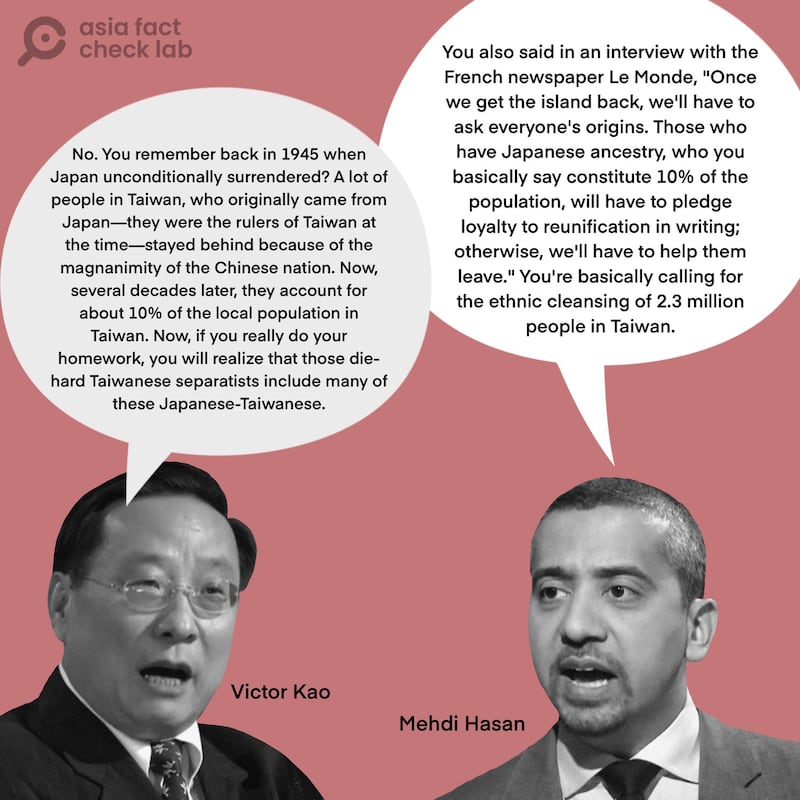This episode of RFA Insider comes to you mostly unedited and unabridged as Eugene and Amy try their hand at recording live! ("Mostly" because we still required some fact checking and the live sound effects had an issue that required Eugene to edit them in anyway).
The Rundown
In lieu of an interview this week, the co-hosts present an extended Rundown segment featuring some of the softer news stories coming out of RFA.
Eugene begins with a North Korean double feature on the country's propaganda efforts. North Korean citizens are expected to attend weekly meetings of their neighborhood watch unit, where they engage in criticism of themselves and their community members and listen to government lectures. RFA learned through a North Korean resident that one lecture boasted of Vladimir Putin's deep respect for Kim Jong Un, as evidenced by the Russian leader's unusual punctuality to a meeting with Kim in 2019. However, this claim falls flat when considering that Putin arrived eight hours late to the pair's most recent meeting.
Another RFA report from sources inside North Korea reveals that residents are growing tired of the propaganda song "Friendly Father," which is being played at every opportunity, from mandatory neighborhood watch unit meetings to casual gatherings at the public park. Beyond its inescapable nature, the song also irritates some elder North Koreans, who resent having to call Kim Jong Un their "friendly father."

Amy presents a story from RFA's Asia Fact Check Lab, or AFCL, which debunks a claim by a pro-Beijing academic about Taiwan's demographics. Victor Gao, vice president of the Center for China and Globalization, appeared on Al Jazeera in August and claimed that 10% of Taiwan's population were descended from Japanese settlers. Furthermore, he asserted that many of these Japanese-Taiwanese were "die-hard Taiwanese separatists" due to their lack of identification with China. AFCL consulted official censuses and household registration surveys to calculate that the current population of ethnic Japanese in Taiwan ranges from several thousand to tens of thousands, far short of the two million claimed by Gao. Additionally, the majority of the island's population identifies as "primarily Taiwanese" over "primarily Chinese" or "both Taiwanese and Chinese," challenging the connection Gao made between shared ethnicity and support of a One China policy.

Next, Eugene introduces the Gumball 3000, a recent supercar rally that spanned Vietnam, Cambodia, Thailand, Malaysia and Singapore. One leg of the rally went through Angkor Wat, a 12th century temple complex and a symbol of Cambodia itself. While the rally was held for charity and provided a quick boost to the local economy through tourism, some human rights activists say the event was insensitive. Soeung Senkaruna, leader of the Cambodian Human Rights and Development Association, pointed out that parading supercars through a country struggling with rampant inequality was not a good look. However, the rally was able to raise $200,000 for the Angkor Hospital for Children and built a soccer field in the floating village of Kampong Kheang.

Finally, Amy closes out with news of Ye, the artist formerly known as Kanye West, holding his first concert in China since 2008. The concert took place in Haikou City, Hainan province and bolstered the local economy so much so that the Haikou government announced a second Ye concert for September 28. International acts have often skipped China on their Asia tours as securing permits from China's Ministry of Culture and Ministry of Public Security has grown more difficult in recent years. However, China analysts suggested that Beijing had witnessed how Taylor Swift's concerts had boosted Singapore's economy and wanted the same, opening the door for Ye to perform in Hainan. Analysts add that the island province, which boasts a unique visa-free scheme for 59 countries, is positioning itself as a new hub for international entertainment and will likely see more international acts come its way.

